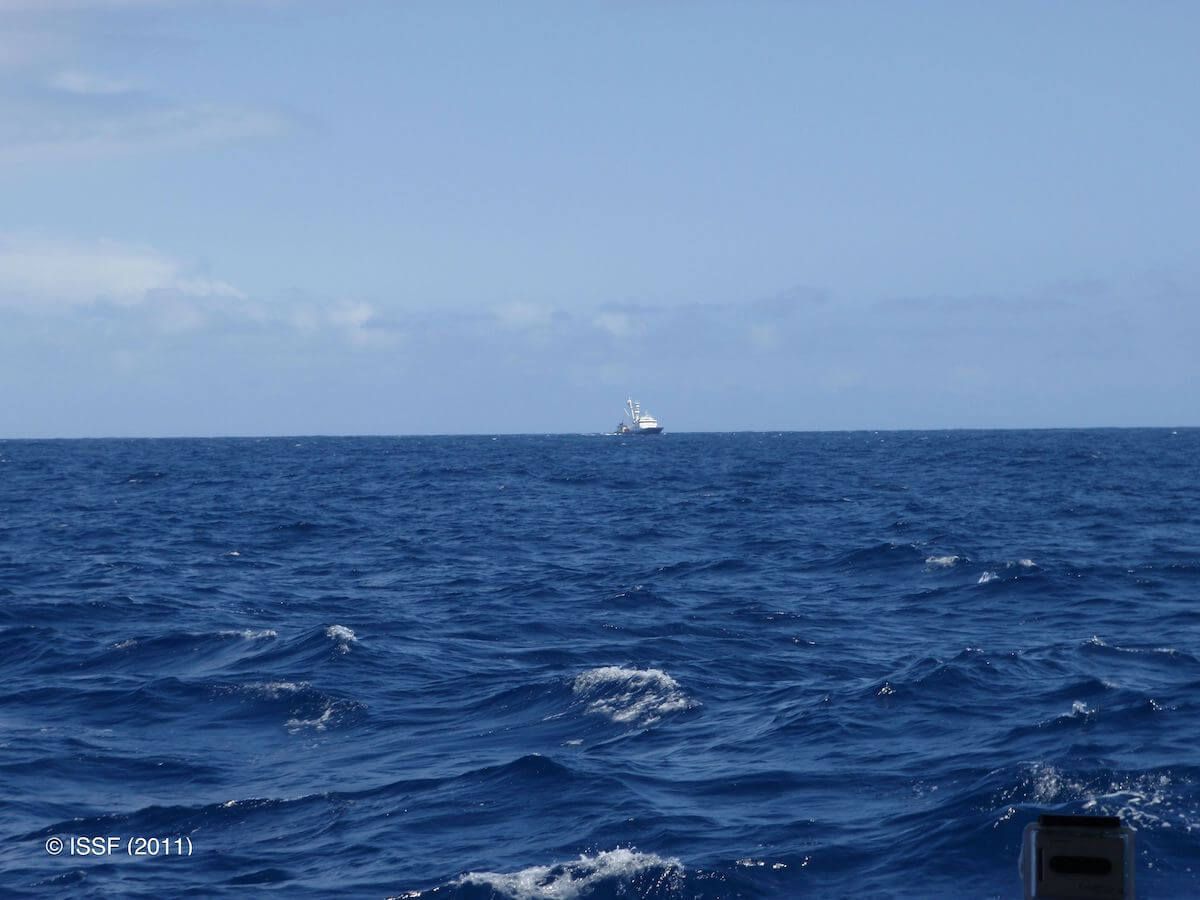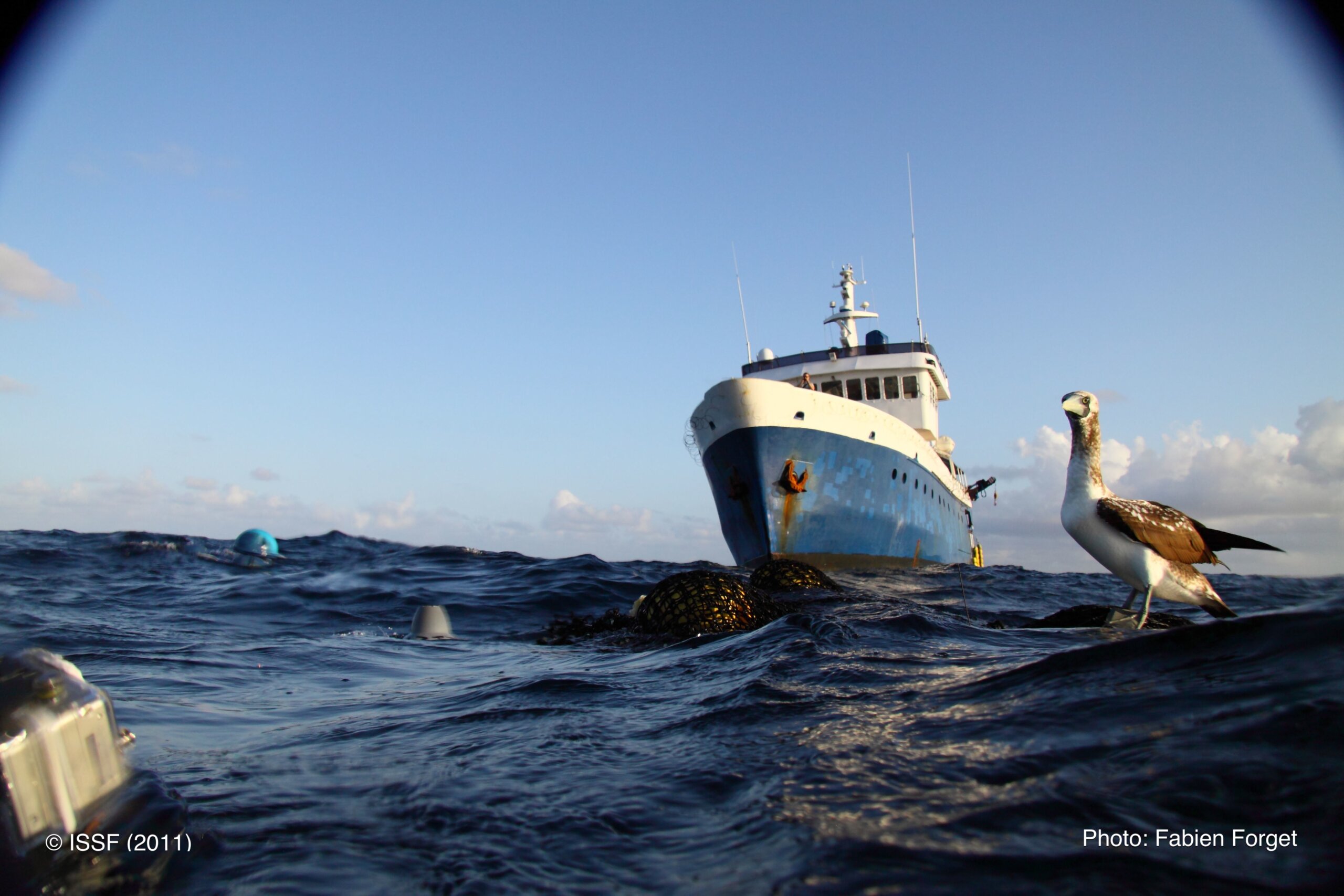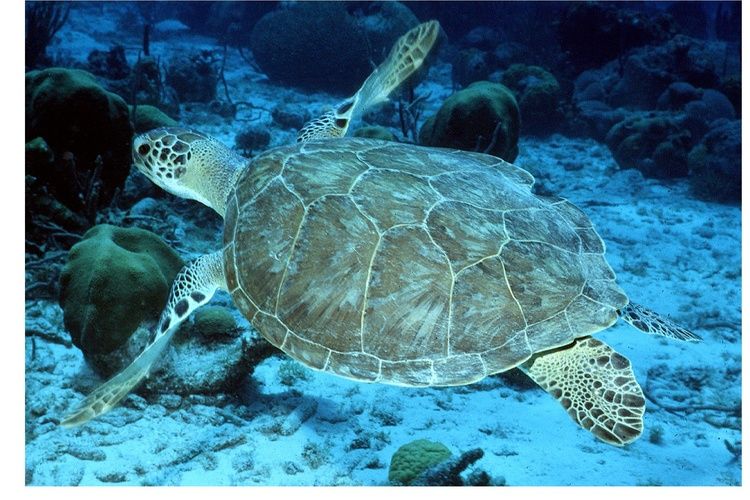
Progress for Eastern Pacific Ocean Tuna Fisheries: Protections, Monitoring for Tuna Stocks and Improved FAD Management
After repeated calls for action to protect Eastern Pacific Ocean (EPO) tuna stocks, we are relieved that last week’s Inter-American Tropical Tuna Commission (IATTC) meeting yielded positive results in advancing the Commission’s agenda on tuna protections and fish aggregating device (FAD) management, among other top-priority topics this year.
New Tropical Tuna Measure Includes FAD Management
ISSF issued a position statement before the meeting calling for the adoption of a precautionary and science-based new version of the previous IATTC tuna conservation measure, which was ineffective in limiting catches of yellowfin, bigeye and skipjack. Fortunately, IATTC parties came to the meeting ready to work. It was gratifying to see IATTC member states and the Commission President work together in the months preceding the meeting, resulting in agreement on many issues prior to its start.
The Commission took action to safeguard tropical tuna stocks by adopting a new, enhanced tropical tuna measure. The improved measure includes additional fishery closure days for vessels that exceed a certain bigeye tuna annual catch threshold, while continuing the 72-day full closure for purse seine vessels, the “corralito” time/area closure, and bigeye catch limits for longline vessels.
Ahead of the meeting, ISSF urged that a new IATTC tuna measure also include and address FAD management through a range of possible options to prevent an increase in tropical tuna fishing mortality. We saw good progress here, too. Specifically, IATTC decided to (1) progressively reduce the limit on active FADs annually from 2022-2024 and (2) require the submission of operational FAD buoy data (position and biomass information) to the Commission for scientific purposes. And while we are disappointed that no headway was made on FAD marking and fully non-entangling FADs without nets, we are pleased that the IATTC FAD working group has been charged with recommending criteria for biodegradable FADs.
Finally, we are pleased that the new measure also mandates the submission of vessel monitoring data from purse seine and longline vessels to the IATTC for scientific research and assessment work.
Other Notable Action for EPO Tuna Fisheries
It’s worth noting other important wins from the IATTC meeting that answered ISSF position statement “asks.” The Commission adopted:
- An electronic monitoring systems (EMS) work plan, a critical step in supporting IATTC’s scientific data collection and member compliance work
- A Port State Measures resolution, essential to combatting illegal, unreported, and unregulated (IUU) fishing activities in EPO tuna fisheries
- Recommendations to strengthen and more fully implement IATTC’s compliance assessment process — a move toward improving the Commission’s ability to monitor, assess, and improve their members’ implementation of conservation and management measures.
While a robust list of to-dos remains for the Commission — improvements in harvest strategies, at-sea transshipment reforms and other monitoring, control, surveillance (MCS) tools, along with further FAD management work — ISSF applauds the positive steps at last week’s IATTC meeting.
We stand ready to collaborate with stakeholders and to work with all IATTC members to support their efforts in the coming years. We remain watchful and engaged to ensure that more progress can be made for the long-term protection of EPO tuna fisheries.


